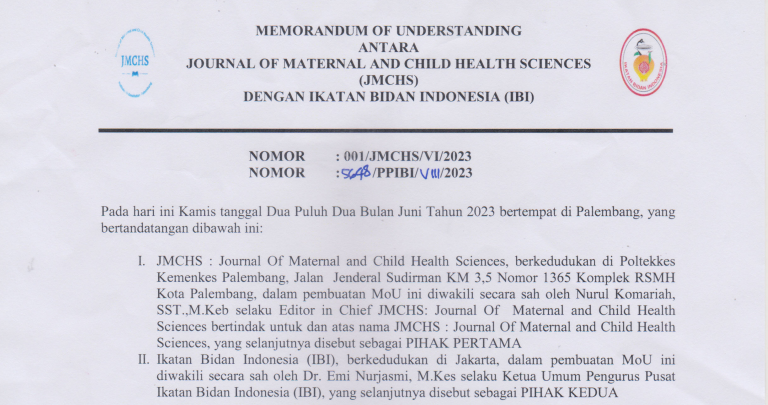Effect of Diaphragm Breathing Exercise on Reducing Anxiety Level of Pregnant Women
Abstract
Background: Anxiety is one of the emotional disorders in pregnant women that commonly occurs in the third trimester. As many as 28.7% of anxiety occurred in pregnant women before the delivery process. Anxiety increased 1.7 times delivery with Sectio Caesarea. One of the non-pharmacological treatments that can overcome the anxiety of pregnant women is diaphragmatic breathing exercises. The purpose of the study was to determine the effectiveness of diaphragmatic breathing exercises on the anxiety of third trimester pregnant women in Palembang City.
Methods: the type of research used is pre-experimental with one group pre-test post-test design. The research sample was 38 respondents in the third trimester of pregnancy. The statistical test used to be the Wilcoxon test with a 95% confidence level.
Results: The analysis showed that the anxiety level of pregnant women in the third trimester decreased after doing the Diaphragm Breathing Exercise. The results of the Wilcoxon statistical test showed that there was an effect of the intervention of Diaphragm Breathing Exercise on the anxiety of pregnant women in the third trimester (p-value 0.001 0.05).
Conclusion: Diaphragm Breathing Exercises can reduce the anxiety level of pregnant women in the third trimester.
Authors who publish with this journal agree to the following terms:
- Authors retain copyright and grant the journal right of first publication with the work simultaneously licensed under a Creative Commons Attribution License that allows others to share the work with an acknowledgement of the work's authorship and initial publication in this journal.
- Authors are able to enter into separate, additional contractual arrangements for the non-exclusive distribution of the journal's published version of the work (e.g., post it to an institutional repository or publish it in a book), with an acknowledgement of its initial publication in this journal.
- Authors are permitted and encouraged to post their work online (e.g., in institutional repositories or on their website) prior to and during the submission process, as it can lead to productive exchanges, as well as earlier and greater citation of published work












